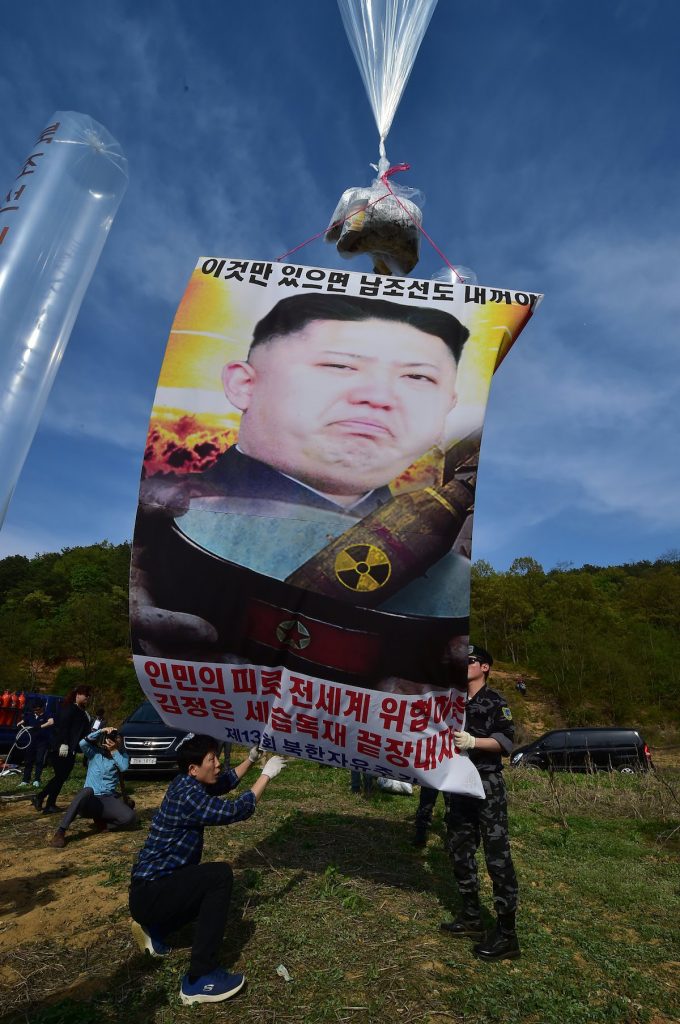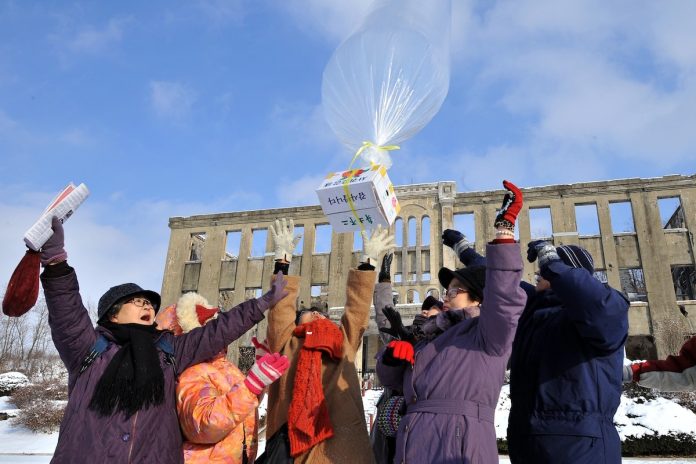South Korea’s government has been urged not to pass a law that would criminalize activists using balloons to send leaflets, information, money, and other items over the border into North Korea.
Human Rights Watch (HRW) called on the South Korean National Assembly to reject the proposed law that is due to be put to vote on Dec. 9 and, if passed, become law if signed by President Moon Jae-in.
HRW said that if enacted, the law would violate South Koreans’ rights to freedom of expression and would make engaging in humanitarianism and human rights activism a criminal offense.
“The proposed law does a great disservice to the people of both South Korea and North Korea, and the National Assembly should vote against it,” said John Sifton, HRW’s Asia advocacy director.
HRW said that the South Korean government this year has increasingly engaged in intimidation of local human rights groups working on North Korea, apparently to help diplomatic efforts related to weapons proliferation.
“The South Korean government should abandon its misguided strategy of trying to win favor with Kim Jong Un by cracking down on its own citizens,” Sifton said. “Promoting human rights is not at odds with effective foreign policy.”
On Dec. 2, a committee of the assembly passed an amendment that would make it a crime punishable by up to three years in prison to send leaflets or other materials into North Korea without the government’s permission, including “promotional pamphlets,” “printed hand-outs,” and “auxiliary storage devices” (such as USBs, SD cards, and disks), as well as “money or other monetary benefits.”

HRW said that the overbroad language could be interpreted to include any items of value at all, and potentially, in the North Korean context, food or medicine.
Earlier this year, the South Korean government used regulatory authority to target groups that send balloons with leaflets or large water bottles filled with rice to North Korea.
The crackdowns began immediately after public demands in June by Kim Yo Jong, North Korean leader Kim Jong Un’s sister and a high-ranking party official, that South Korea should stop all such activities. The current bill to criminalize these activities was introduced days later.
Many North Korean escapees and South Korean groups routinely send money to relatives and other at-risk people in North Korea, as well as USB and SD cards with digital content containing documentaries or other presentations on life outside North Korea, classes in math or economics, information on current affairs, news, and history. They also send seeds, food, secondhand clothes, and medicine.









